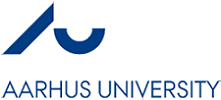International Economic Consulting

- What are the costs and benefits of spreading public sector activities, e.g. decentralize university educations to a higher degree?
- Should farmers in Bangladesh receive direct financial support or just price guarantees?
- How many cars will need a parking space in Copenhagen in 2030 – and how many public and private electric vehicle-charging stations are needed to accommodate the shift to hybrid and electric cars and car sharing?
- How can CO2 quotas be priced and distributed in a market efficient manner?
- Which pipelines should be built in order to secure the EU's future gas supply and should European countries still effectively ban fracking?
- In light of recent disruptions in global supply chains, should a company reshore production or diversify its international providers of inputs and intermediate goods to include more countries than currently?
These and many other problems, their increasing complexity, their positioning at the border between economics and management and their placement in international contexts have been the backbone of the steadily growing demand for International Economic Consulting services. Large multinational corporations, regional and national policy makers, international organisations (like the World Bank, the EU and the OECD) and a growing number of non-profit interest groups require sound economic analyses and feasibility studies for an impressive range of issues and industrial sectors.
The MSc programme in International Economic Consulting – which we have developed in close cooperation with major players of the industry – is organised to prepare students for various job functions within this context. The programme will provide you with up-to-date theoretical knowledge required for applied economic analyses; relevant quantitative and empirical methods suitable for sectoral studies, policy impact analyses and forecasting; the training and concepts required for the implementation of national and international project consulting and, last but not least, introduce you to an exiting international environment.
Na studia magisterskie mogą kandydować wszyscy, którzy ukończyli studia licencjackie lub inżynierskie (studia I stopnia), studia magisterskie lub studiują na ostatnim roku studiów I-stopnia. Studia, które planujesz powinny mieć zbliżony profil do tych obecnych lub ukończonych, ponieważ w procesie rekrutacji kluczowa jest ich zgodność programowa.
Wykaz punktów ECTS – osoby, które są jeszcze w trakcie studiów, muszą załączyć wypis punktów ECTS, w którym będzie wykazane, jakie przedmioty były realizowane na studiach oraz ile punktów za nie otrzymano.
Dyplom ukończenia studiów licencjackich lub inżynierskich – jeśli jesteś absolwentem wyższej uczelni, nie potrzebujesz wypisu, wystarczy załączyć dyplom ukończenia studiów wraz z suplementem (w języku angielskim lub oryginał z tłumaczeniem)
Course description - należy przygotować dokument, zbierający cały sylabus ze studiów licencjackich. Takie sylabusy najczęściej są do pobrania na stronie uniwersytetu. Należy je przetłumaczyć na język angielski (można samodzielnie) i złączyć w jeden dokument. Warto też zapytać w dziekanacie uczelni, czy nie dysponują wersją angielską.
Oficjalna skala oceniania Twojej uczelni - możesz dostać taki dokument w dziekanacie Twojej uczelni lub skonstruować samodzielnie. W obu przypadkach dokument powinien zawierać pieczątkę dziekanatu.
Spełnienie wymagań w zakresie języka angielskiego można udokumentować w jeden z następujących sposobów:
IELTS – 6.5
TOEFL – 83 (Aarhus University TOEFL kod - 8935)
Uwaga: wymagania językowe mogą ulec zmianie. Przed wysłaniem aplikacji upewnij się jakie są wymagania językowe na konkretny kierunek bezpośrednio na stronie uczelni.
W przypadku zdawania certyfikatu IELTs upewnij się, czy uczelnia oprócz wymagań oceny końcowej nie ma również wymagań odnośnie ocen cząstkowych.
You can be admitted to the master's programme if the university assesses that your education has a level, scope, and content that corresponds to the academic requirements specified below.
| Subject area | Number of ECTS |
Methods The following subject areas must be covered:
| 15 |
| Marketing | 7,5 |
| Finance | 7,5 |
| Accounting | 7,5 |
| Organisation and leadership theory | 7,5 |
| Microeconomics | 5 |
| Operations management | 5 |
| Additional ECTS points within the abovementioned areas | 20 |
| Bachelor’s project | 10 |
| Total | 85 |
The study programme provides the graduate with specialist knowledge within the disciplines of the study programme that give the graduate high academic qualifications to develop solutions to issues pertaining to business administration in companies and organisations in the public and private sectors.
Through the study programme, the graduate has acquired knowledge that enables the graduate to:
- Understand and consider knowledge pertaining to the various disciplines as well as identify academic issues
- Master the scientific methodologies and tools of the various disciplines as well as master general skills associated with employment within the areas studied
- Assess and choose among the scientific methodologies and tools of the various disciplines as well as develop new analysis and solution models
- Discuss professional and academic issues with both specialists and laymen
- Manage work and development situations that are complex, unpredictable and require new solution models
- Initiate and carry out, on an independent basis, monodisciplinary and interdisciplinary collaboration and take professional responsibility
Career opportunities for graduates in MSc IEC include the following possibilities:
- Consultant in International Consulting Companies;
- Analyst in regional and national governments;
- Consultant in International Organisations and Development Agencies;
- Economist with non-profit organisations;
- Economist/Analyst with multinational companies, banks or industrial interest groups.
